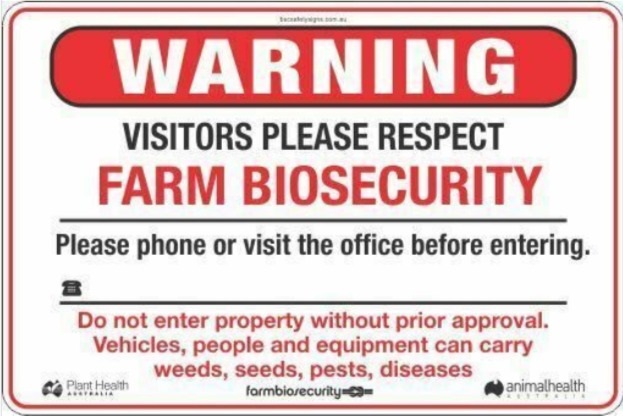 VICTORIAN agriculture stakeholders are being invited to share their views on biosecurity through an online survey.
VICTORIAN agriculture stakeholders are being invited to share their views on biosecurity through an online survey.
The Understanding Victoria’s Biosecurity System Survey, from Agriculture Victoria, seeks to understand attitudes and knowledge of Victoria’s biosecurity system to improve how we prepare for and meet future biosecurity challenges.
Biosecurity Services executive director Katherine Clift said farmers, businesses, industry groups and community members were invited to contribute.
“The agriculture sector contributes over $14 billion to the Victorian economy, supporting essential food supply both here in Australia and overseas, and providing thousands of jobs,” Dr Clift said.
In 2020, six farms tested positive for three different strains of avian influenza in Victoria. This was the largest avian influenza outbreak recorded in Australia and the most significant biosecurity event in Victoria for the last 20 years, highlighting the importance of a strong biosecurity system.
“Timely, effective response is critical to rapid eradication of the disease, minimising the impacts on the poultry industry and maintaining the trust and confidence of consumers and trading partners,” Dr Clift said.
Over the past 20 years, Australia has responded to biosecurity incursions, including Varroa mite, citrus canker and equine influenza as well as prepared for threats such as foot and mouth disease and African swine fever, all of which can have a significant economic impact.
“Managing biosecurity risks is increasingly challenging, as international and interstate migration, climate change, tourism and increased movement of goods all contribute to the risk of new incursions.”
Dr Clift said government, industry and the community needed to work together to prepare for, and respond to, current and future biosecurity risks.
“Everyone has a part to play in protecting Victoria from the impacts of pests and diseases,” she said.
“You can contribute to biosecurity by seeking advice when you see something unusual and reporting it, implementing good biosecurity measures in your business or on your property, working with your community to manage pests such as gorse, Queensland fruit fly or rabbits and practicing good hygiene while travelling.
“These simple steps can help protect yourself and those around you, and keep our beautiful bush and bountiful farmland free from pests and diseases.
“Taking part in the survey lets you have your say on issues ranging from potential biosecurity threats and impacts, to where you like to get your information from and what could be improved.”
The results from the survey will be published online and will inform the development of future biosecurity initiatives.
Dr Clift said participation in the survey will help identify how Agriculture Victoria would strengthen the state’s biosecurity system.
This survey comes as part of the Victorian Government’s unprecedented $143 million investment into Strengthening Victoria’s Biosecurity System as part of the 2019-20 budget.
The online survey takes about 15 minutes to complete, and is open for submission from Wednesday 13 January until Thursday 11 February.
To complete the survey visit wmsr.com.au/agvic and for more information, visit agriculture.vic.gov.au/svbs-program
Source: Agriculture Victoria.

HAVE YOUR SAY